The exhibition ‘Racial Diagnosis: Gypsy’ at the National Museum of Kosovo displays photographs of Roma and Sinti people who were killed at the Nazis’ Auschwitz-Birkenau death camp during World War II.
The exhibition ‘Racial Diagnosis: Gypsy’ opened on Thursday evening at the National Museum of Kosovo in Pristina, telling the story of the “forgotten genocide” of Roma and Sinti people by Germany’s Nazi regime during World War II.
The exhibition includes 100 pictures of victims who died at the Auschwitz-Birkenau death camp as well documents that show how Nazis planned the genocide.
It also includes family pictures that illustrate how Roma and Sinti people were integrated into local life in Germany and German documents and testimonies by Nazis that explain how Roma and Sinti people were systematically dehumanized.

Denis Avdi of the Voice of Roma, Ashkali and Egyptians NGO, which co-organised the exhibition. Photo: BIRN/Serbeze Haxhiaj.
The exhibition was organized by Kosovo NGO Voice of Roma, Ashkali and Egyptians in cooperation with the Central Council of German Sinti and Roma and the Documentation Centre of German Sinti and Roma.
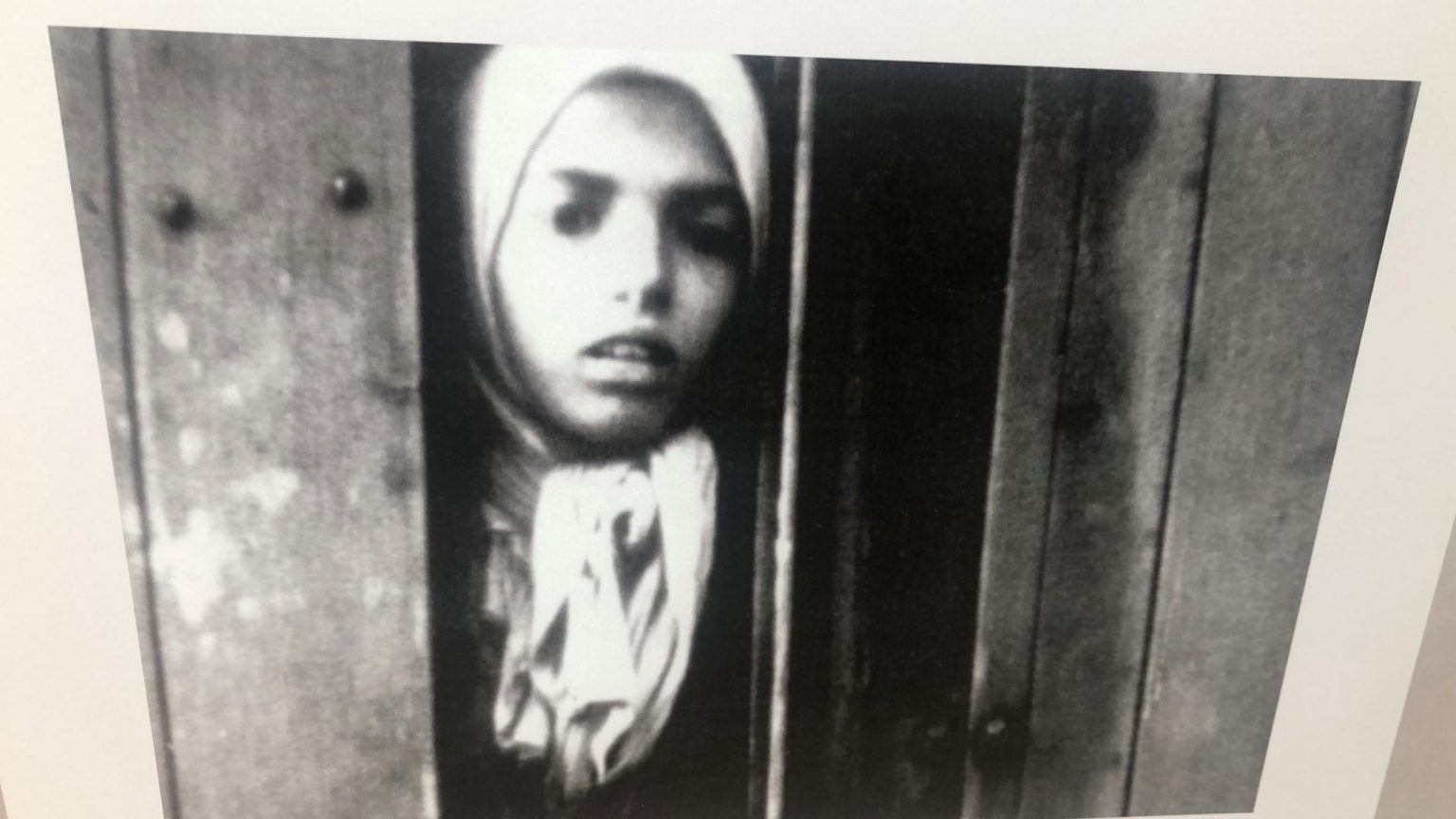
An imprisoned Roma child in at the Auschwitz-Birkenau camp. Photo: BIRN/Serbeze Haxhiaj.
“The pictures and diverse stories of the victims illustrate the genocide of the Sinti and the Roma under the Nazi regime,” Denis Avdi of the Voice of Roma, Ashkali and Egyptians told BIRN.
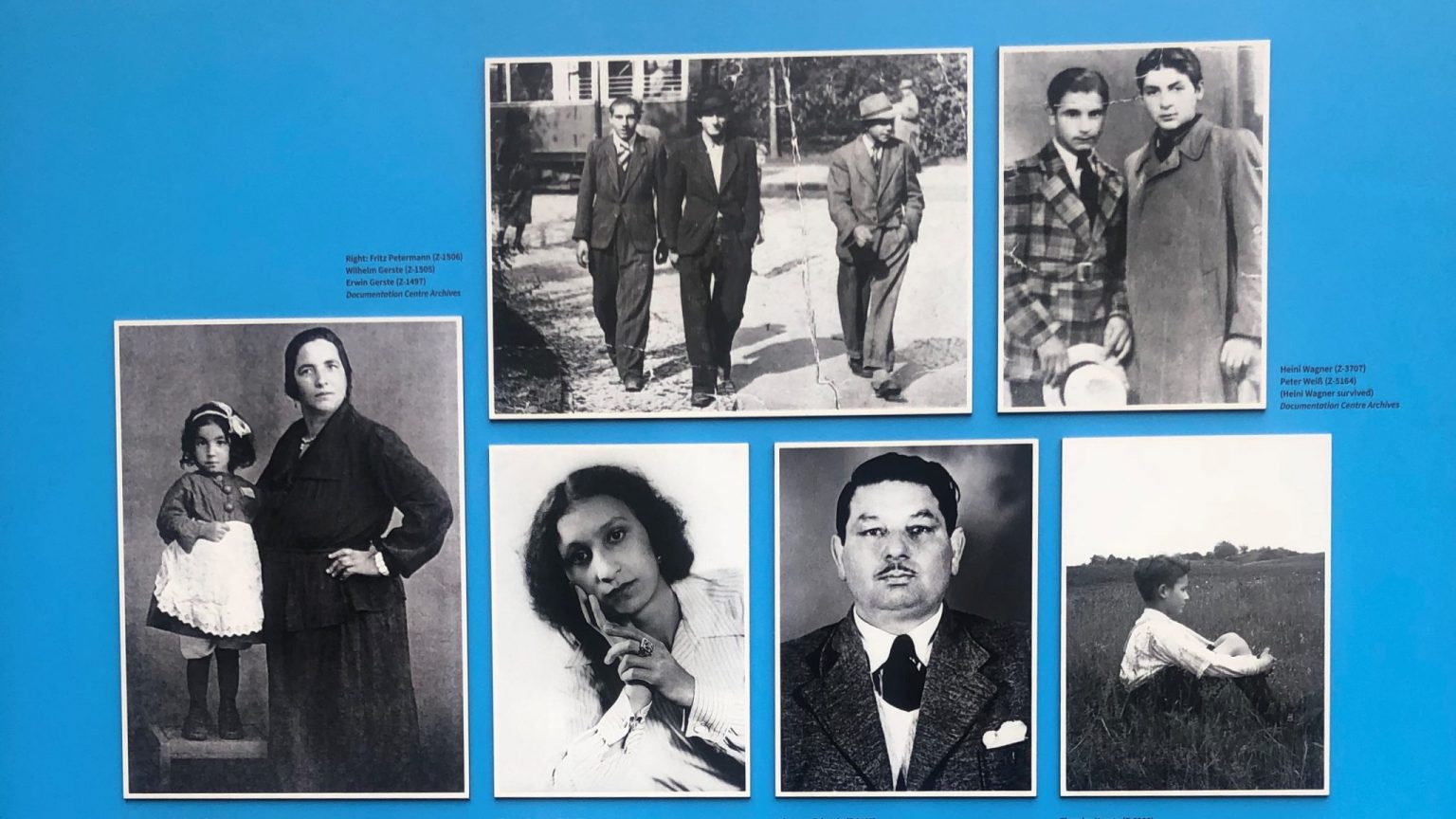
Roma people who were murdered in Nazi camps. Photo: BIRN/Serbeze Haxhiaj.
“We are presenting this exhibition of people who were killed but remained unmentioned until long after the war, even within the Sinti and Roma communities themselves. But the consequences of this tragedy echo strongly in those communities,” Avdi added.
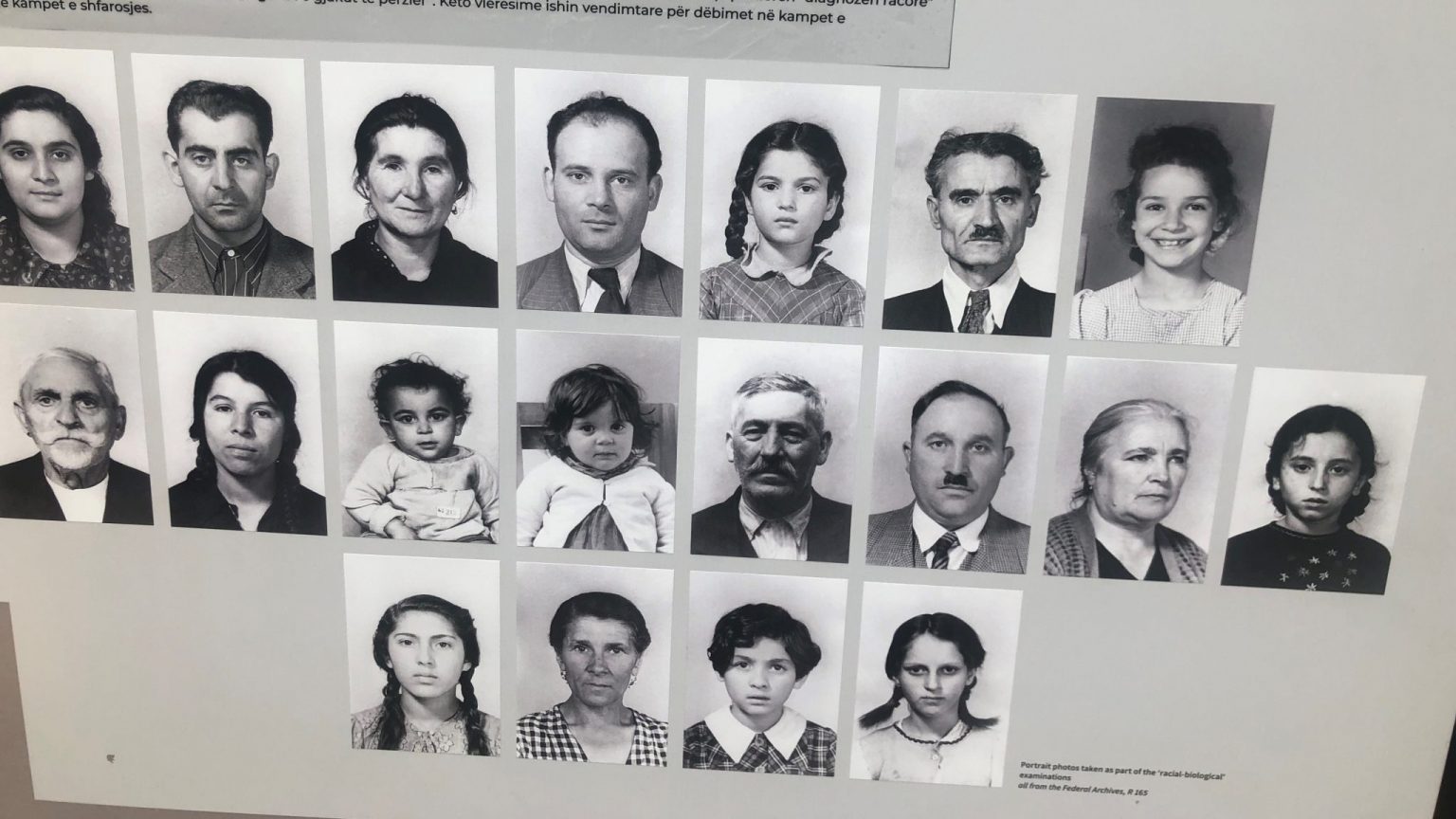
Victims of the Auschwitz-Birkenau camp. Photo: BIRN/Serbeze Haxhiaj.
The exhibition also includes archive documents that show how Roma and Sinti people were murdered systematically, family by family, from infants to elderly people, throughout the Nazis’ sphere of influence.
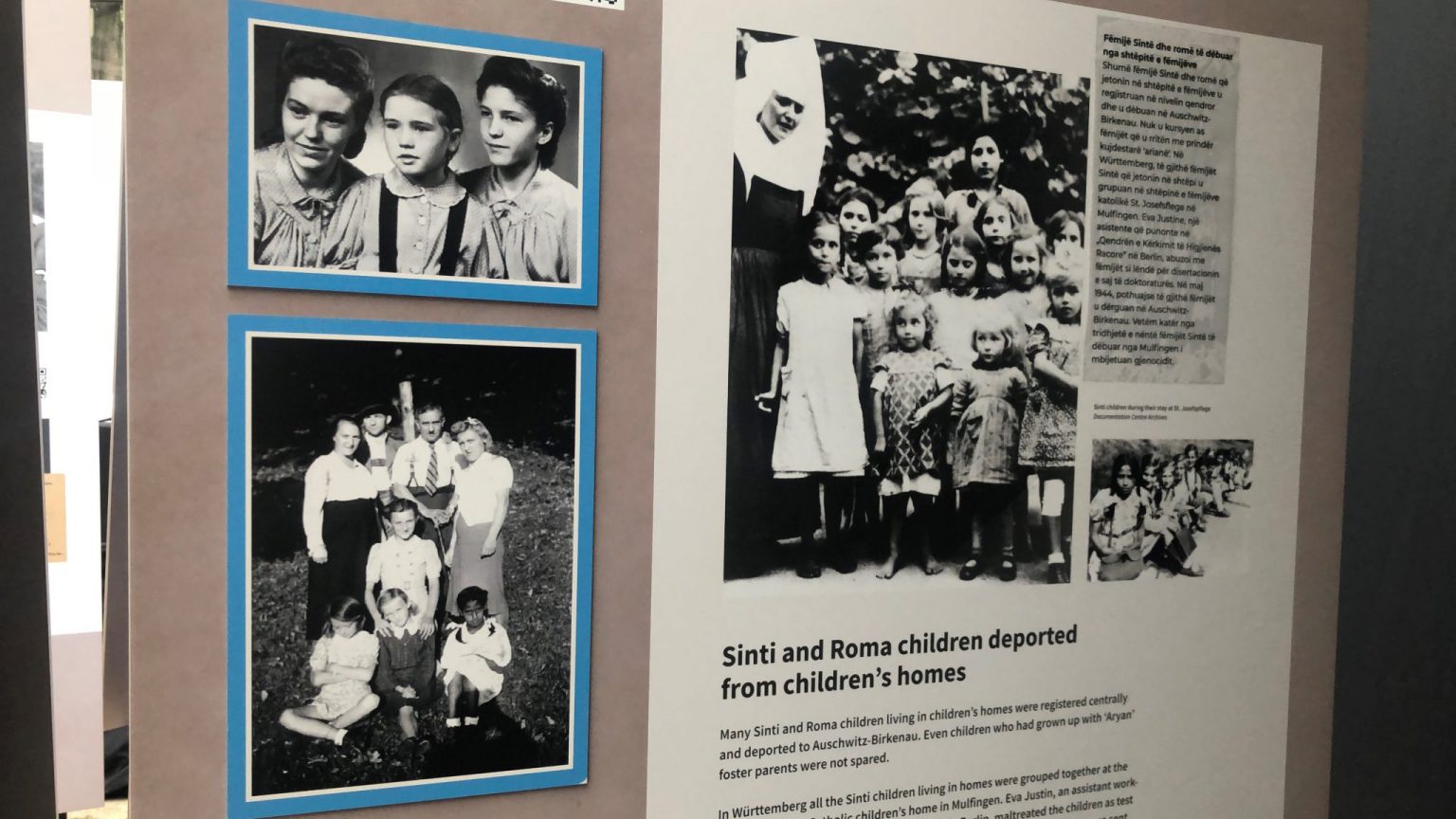
Roma and Sinti children who were deported to Auschwitz-Birkenau from children’s homes. Photo: BIRN/Serbeze Haxhiaj.
“In the history books in Kosovo not much space has been given to the genocide of Roma and Sinti. It was generally presented as a Holocaust of Jewish people and others,” Avdi said.
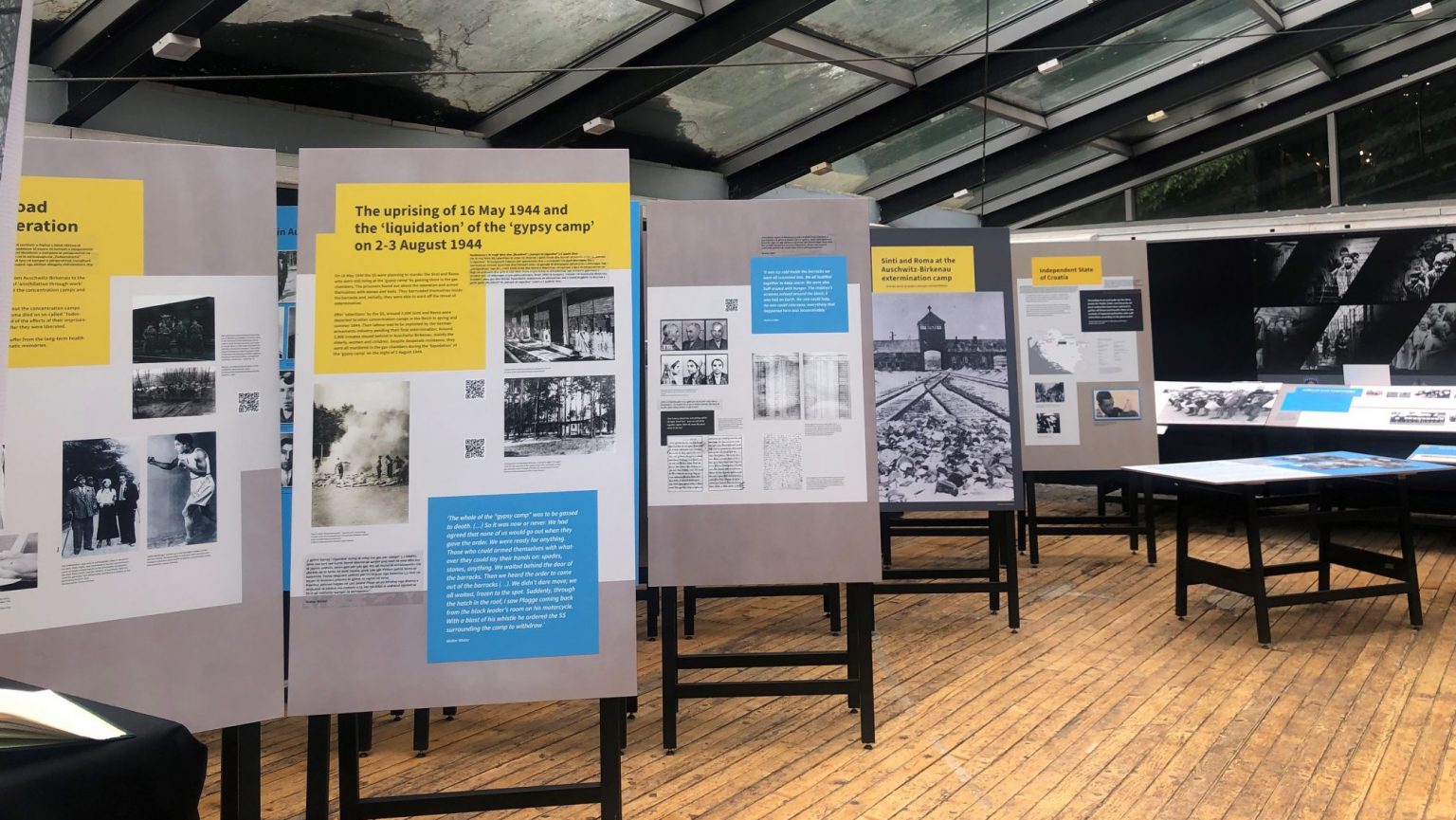
The exhibition ‘Racial Diagnosis: Gypsy’ at the National Museum of Kosovo in Prishtina. Photo: BIRN/Serbeze Haxhiaj.
“We hope this exhibition will help as knowledge and as a commemoration of the victims because it was a long path to recognition,” he added.
The exhibition is on display at the National Museum of Kosovo until May 31.





